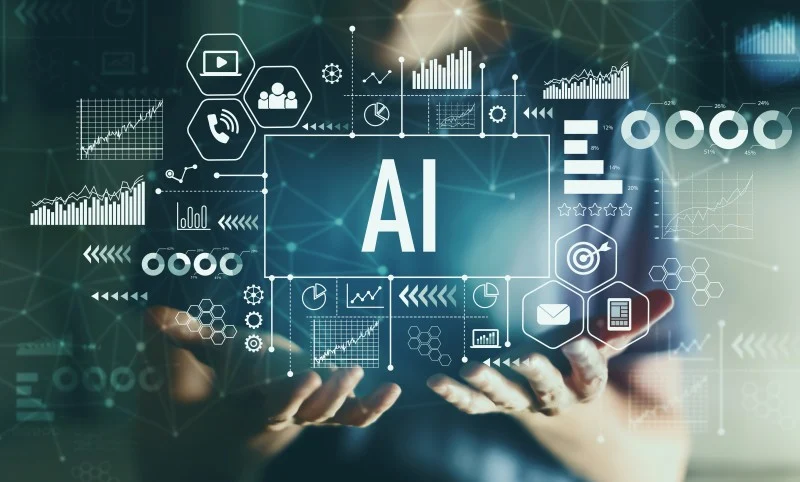In today’s fast-paced business world, efficiency is the key to staying competitive. Artificial Intelligence (AI) has emerged as a powerful tool for optimizing workflows, automating repetitive tasks, and driving business growth. AI-powered automation streamlines operations, reduces human error, and allows teams to focus on high-value tasks, ultimately saving both time and money.
This article explores how AI-driven workflows enhance business efficiency, the key benefits, real-world applications, and how organizations can integrate AI automation for maximum impact.
Understanding AI-Powered Automation
AI-powered automation refers to the use of machine learning (ML), natural language processing (NLP), and robotic process automation (RPA) to perform tasks without direct human intervention. These technologies help businesses streamline operations, reduce costs, and improve productivity.
Common AI automation tools include:
- Chatbots & Virtual Assistants (e.g., AI-driven customer support)
- AI-Powered CRM & Sales Automation (e.g., lead qualification, personalized marketing)
- Intelligent Data Processing (e.g., automated invoicing, expense tracking)
- AI in Supply Chain & Inventory Management (e.g., demand forecasting, predictive maintenance)
Key Benefits of AI-Powered Automation
1. Increased Productivity & Efficiency
AI automation eliminates repetitive tasks, allowing employees to focus on strategic decision-making, creativity, and customer relationships. Automated systems can handle large volumes of work with speed and accuracy.
2. Cost Reduction & Higher ROI
By reducing the need for manual labor and minimizing errors, AI automation leads to significant cost savings. Businesses can allocate resources more effectively, improving their overall return on investment (ROI).
3. Enhanced Accuracy & Reduced Human Error
AI-powered tools process data with greater precision than humans, minimizing the risk of costly mistakes in areas such as financial transactions, order processing, and data analysis.
4. Scalability & Flexibility
Automated workflows enable businesses to scale operations effortlessly. AI-driven systems can handle increased workloads without requiring additional resources, making them ideal for growing businesses.
5. Improved Customer Experience
With AI automation, businesses can offer personalized and instant responses to customer inquiries, process orders faster, and deliver seamless service across multiple channels, leading to higher customer satisfaction and loyalty.
6. Data-Driven Decision Making
AI algorithms analyze vast amounts of data in real-time, providing actionable insights for businesses. This allows for better forecasting, improved risk management, and smarter strategic planning.
Real-World Applications of AI in Business Automation
1. AI in Customer Support & Sales
- AI chatbots handle customer inquiries, reducing response time and workload for human agents.
- AI-driven CRM systems analyze customer data to provide personalized recommendations.
- Automated email marketing optimizes lead nurturing and follow-ups.
2. AI in Finance & Accounting
- AI-powered tools automate invoice processing, expense tracking, and fraud detection.
- Intelligent algorithms analyze financial trends, providing predictive insights for better budgeting.
3. AI in HR & Recruitment
- AI-driven applicant tracking systems (ATS) streamline resume screening and candidate selection.
- Automated HR chatbots assist with employee queries, onboarding, and scheduling.
4. AI in Supply Chain & Logistics
- AI-powered inventory management systems predict stock levels and reduce waste.
- Intelligent route optimization ensures faster and more cost-effective deliveries.
5. AI in Manufacturing & Operations
- Robotic Process Automation (RPA) enhances production efficiency and minimizes downtime.
- AI-driven predictive maintenance prevents equipment failures and reduces maintenance costs.
How to Implement AI Automation in Your Business
1. Identify Repetitive Tasks for Automation
Analyze your current business operations to determine which manual and time-consuming tasks can be automated using AI.
2. Choose the Right AI Tools
Select AI solutions that align with your business needs, such as:
- Chatbots for customer service
- AI-powered CRM for sales automation
- AI-driven analytics for data insights
3. Integrate AI with Existing Systems
Ensure seamless integration of AI with ERP, CRM, and other business applications for smooth workflows.
4. Train Employees & Foster AI Adoption
Provide training to employees on how to work alongside AI-driven systems to maximize efficiency and innovation.
5. Monitor & Optimize AI Performance
Regularly assess AI performance through key performance indicators (KPIs) and adjust workflows to optimize automation outcomes.
The Future of AI in Business Efficiency
AI automation is evolving rapidly, and its future promises even greater advancements:
- Hyper-Personalization: AI will deliver ultra-customized experiences in marketing, customer service, and product recommendations.
- AI-Driven Decision Making: Businesses will rely on AI to make real-time, data-backed strategic decisions.
- Advanced AI-Human Collaboration: AI will augment human capabilities rather than replace jobs, creating a hybrid workforce.
- Increased Use of Generative AI: AI will automate content creation, email responses, and even software development.
Conclusion: AI as the Ultimate Business Efficiency Booster
AI-powered automation is revolutionizing the way businesses operate. By reducing manual workloads, minimizing errors, and enhancing decision-making, AI is helping companies save time, cut costs, and boost productivity.
As AI continues to evolve, businesses that embrace automation will have a competitive advantage, staying ahead in their industry. The key is to start integrating AI now and gradually scale up automation efforts for maximum business efficiency.











